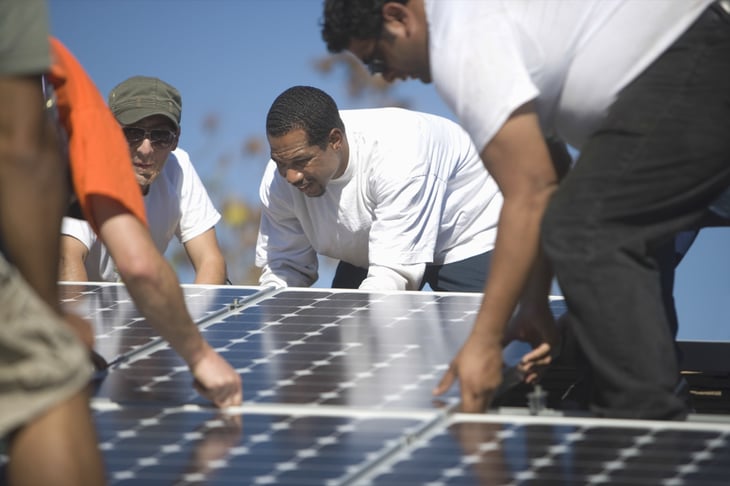
After months of debate, the Democratic-controlled U.S. House of Representatives has passed the Build Back Better Act, bringing a significant portion of President Joe Biden’s agenda closer to reality.
The massive, $1.7 trillion spending bill is still not a done deal, however — it must pass through the Senate, where it could undergo significant changes or falter. While enough dust has settled to start looking at the implications for taxpayers, ongoing negotiations could change or erase these potential savings.
But for now, here are several tax breaks that would be created or extended by the newly passed version of the bill.
1. Extend the expanded child tax credit

The American Rescue Plan Act of 2021, signed into law in March, made significant but temporary changes to the child tax credit, including:
- Increasing the amount of the credit to as much as $3,000 per qualifying child aged 6-17 and up to $3,600 for younger children
- Making it available for qualifying children who turn age 17 in 2021
- Allowing many taxpayers to receive half of the estimated 2021 credit in advance
- Making it fully refundable for most taxpayers, meaning it is possible for eligible families to get the full credit amount even if they don’t owe any federal income tax
These changes are active for the 2021 tax year. If the Build Back Better Act becomes law as it’s currently written, the changes would be extended through 2022. The refundability would also become permanent.
2. Extend the expanded earned income tax credit

Similarly, the American Rescue Plan Act made changes to the earned income tax credit (EITC) that included:
- Increasing the maximum amount of the credit for workers with no dependents to $1,502 (up from $538 in 2020)
- Expanding the qualifying age range for eligible workers from ages 25-64 to include young adults (age 19 and older) and seniors
- Expanding eligibility to families with investment incomes of up to $10,000, indexed for inflation (up from $3,650 in 2020)
The House-passed version of the Build Back Better Act would extend these changes through 2022.
3. Increase the state and local tax deduction

Historically, the state and local tax (SALT) deduction was a valuable one for homeowners in states where property taxes can be relatively high. As we wrote in “12 Expenses You May Be Tempted to Claim as Tax Deductions — but Shouldn’t“, that’s not exactly the case anymore because “the Tax Cuts and Jobs Act of 2017 chopped that deduction off at the knees.”
That law capped the deduction at $10,000 per year through 2025. But the Build Back Better Act would make it more valuable again, by raising it to as much as $80,000 through 2031, The Tax Advisor reports.
However, remember that the bill isn’t a done deal. The SALT deduction change is “one of the most controversial aspects of the legislation” and is likely to be changed in the Senate, according to Bloomberg.
4. Expand the premium tax credit

The Build Back Better Act would expand eligibility for (and increase the amount of) the premium tax credit, a refundable credit that is designed to help lower-income households pay for their health insurance premiums. These changes would last through 2025.
5. Create an electric vehicle tax credit

The House-passed version of the Build Back Better Act would establish a refundable tax credit of up to $8,500 for those who purchase new qualified plug-in electric vehicles that cost up to $80,000.
A smaller credit would be available for those purchasing used electric vehicles. The bill also includes a credit for the purchase of certain new electric bicycles.
6. Extend the tax credit for residential energy-efficient property

Under existing law, certain home improvements that increase energy efficiency are currently eligible for a tax credit. As we explain in “8 Federal Income Tax Breaks for Homeowners,” these renovations include:
- Solar electricity
- Solar water heaters
- Geothermal heat pumps
- Small wind turbines
Currently, the credit is worth as much as 26% of the cost of such upgrades and is available through 2023. The House-passed version of the Build Back Better Act would extend the credit through 2033 and make the credit refundable starting in 2024.





Add a Comment
Our Policy: We welcome relevant and respectful comments in order to foster healthy and informative discussions. All other comments may be removed. Comments with links are automatically held for moderation.